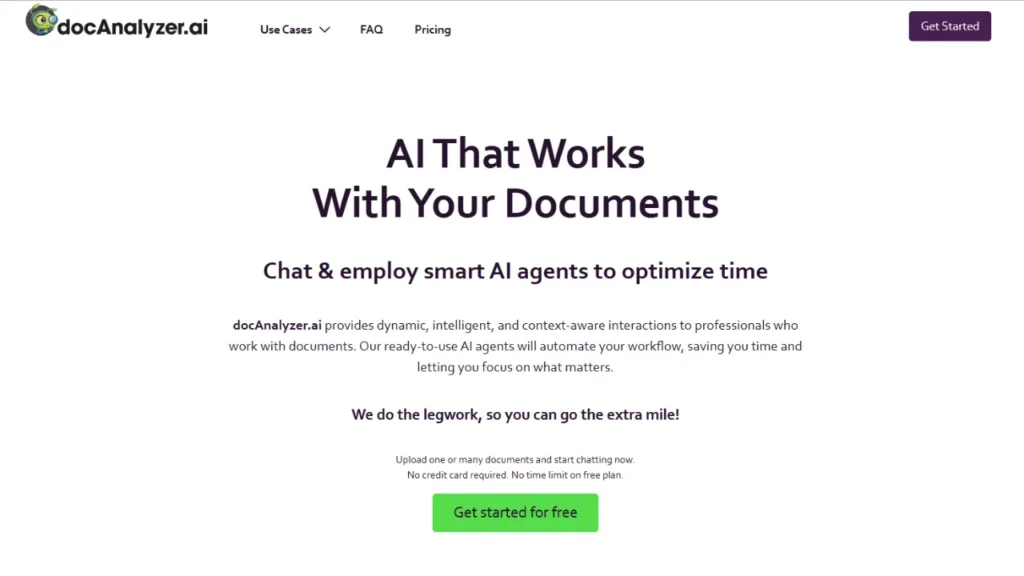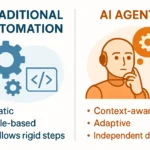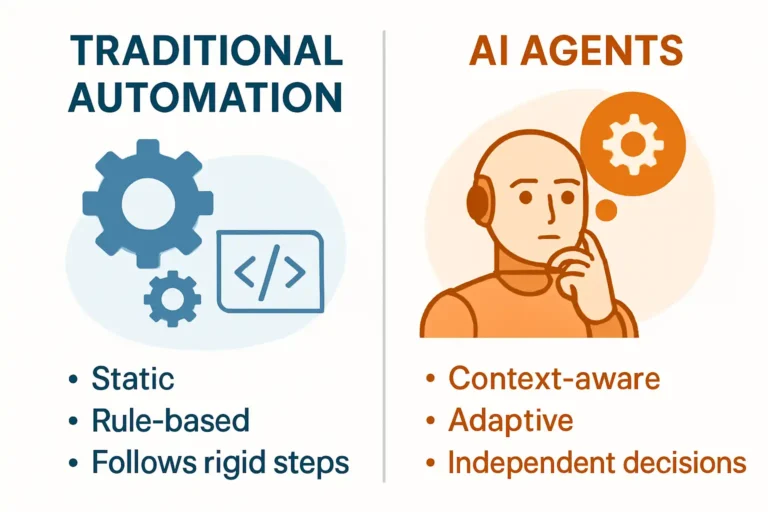The legal landscape is undergoing a profound transformation, with artificial intelligence (AI) at the forefront of this change. As a legal professional who's spent countless hours exploring and testing various AI tools, I can confidently say that the right AI solutions can significantly enhance your practice. In this comprehensive guide, I'll walk you through ten remarkable free AI tools that are reshaping the legal industry in 2025.
The integration of AI in legal practice isn't just a fleeting trend; it's becoming an essential aspect of modern law firms. These tools are designed to streamline workflows, improve accuracy, and allow lawyers to focus on high-value tasks that require human expertise. From document analysis to legal research, client communication to predictive analytics, AI is revolutionizing every facet of legal work.
10 Free AI Tools for Lawyers
As we delve into these tools, remember that while they're incredibly powerful, they're meant to augment human intelligence, not replace it. The goal is to leverage AI to enhance your capabilities, allowing you to serve your clients more effectively and efficiently. Let's explore how these free AI tools can transform your legal practice and give you a competitive edge in today's rapidly evolving legal market.
1. LegalMind: Your AI-Powered Legal Research Assistant
LegalMind is a game-changer in the realm of legal research. This innovative tool harnesses the power of natural language processing to understand complex legal queries and provide relevant, accurate results in seconds. As someone who's spent countless hours poring over case law and statutes, I can attest to the transformative impact of LegalMind on research efficiency.
Key Features:
- Advanced natural language processing for intuitive querying
- Comprehensive database covering federal and state laws
- Real-time updates on new legislation and court decisions
- Customizable alerts for specific legal topics or jurisdictions
You May Also Like: 10 Best AI Assistants to Transform Your Workflow
How It Works:
LegalMind's user-friendly interface allows you to input queries in plain English. The AI then analyzes your question, searches its vast database, and presents the most relevant results. What truly sets LegalMind apart is its ability to understand context and nuance, often uncovering connections that might be missed in traditional keyword searches.
Practical Applications:
I've found LegalMind particularly useful for:
- Quickly finding relevant precedents for ongoing cases
- Staying updated on changes in specific areas of law
- Conducting preliminary research for client consultations
Limitations:
While LegalMind is incredibly powerful, it's important to note that it doesn't replace the need for human legal expertise. The tool provides information and insights, but interpreting and applying this information still requires professional judgment.
2. DocAnalyzer: AI-Driven Document Review and Analysis
DocAnalyzer is a revolutionary tool that's changing the game in document review and analysis. As a lawyer who's spent countless hours manually reviewing contracts and legal documents, I can't overstate the impact of this AI-powered assistant on efficiency and accuracy.

Key Features:
- Rapid document scanning and text extraction
- Automatic identification of key clauses and terms
- Comparison of multiple documents to spot discrepancies
- Risk assessment based on predefined criteria
How It Works:
DocAnalyzer uses advanced machine learning algorithms to scan and analyze legal documents. It can process various file formats, including PDFs and scanned images. The AI identifies important clauses, extracts key information, and even flags potential issues or inconsistencies.
You May Also Like:10 Best AI Tools For Research Paper Writing
Practical Applications:
I've found DocAnalyzer invaluable for:
- Due diligence in mergers and acquisitions
- Contract review and negotiation
- Lease agreement analysis
- Compliance checks against regulatory requirements
Efficiency Gains:
In my experience, DocAnalyzer can reduce document review time by up to 70%. This not only saves time but also allows for more thorough and consistent analysis across large volumes of documents.
Limitations:
While DocAnalyzer is highly accurate, it's crucial to remember that AI-driven analysis should always be verified by a legal professional. The tool is an assistant, not a replacement for human expertise.
3. CasePredictor: Leveraging AI for Litigation Outcomes
CasePredictor is an innovative tool that uses artificial intelligence to analyze historical case data and predict potential outcomes of litigation. As a litigator, I've found this tool to be an invaluable asset in strategic decision-making and client counseling.
Key Features:
- Analysis of millions of past cases to identify patterns
- Customizable inputs for case-specific details
- Probability assessments for different outcomes
- Identification of key factors influencing case results
How It Works:
CasePredictor utilizes machine learning algorithms to analyze vast amounts of historical case data. By inputting details of your current case, the AI compares it to similar past cases and provides a range of potential outcomes along with their probabilities.
You May Also Like: 14 Best AI Writing Tools
Practical Applications:
I've successfully used CasePredictor for:
- Assessing the strength of a case before filing
- Advising clients on settlement options
- Developing litigation strategies
- Managing client expectations
Data-Driven Insights:
What I appreciate most about CasePredictor is its ability to provide data-driven insights that complement my professional judgment. It often highlights factors I might have overlooked or underestimated.
Limitations:
While CasePredictor offers valuable insights, it's crucial to remember that each case is unique. The tool provides probabilities based on historical data, but unforeseen factors can always influence the actual outcome.
4. LegalBot: AI-Powered Client Communication
LegalBot is a cutting-edge AI tool designed to enhance client communication and streamline the intake process. As someone who's always looking for ways to improve client service, I've found LegalBot to be a game-changer in managing client interactions efficiently.
Key Features:
- 24/7 availability for client inquiries
- Natural language processing for understanding client questions
- Customizable responses based on firm-specific information
- Seamless integration with case management systems
You May Also Like: Best Free Ai Tools For Email Writing
How It Works:
LegalBot uses advanced natural language processing to understand and respond to client inquiries. It can be integrated into your firm's website or used as a standalone chatbot. The AI is trained on your firm's specific information and can handle a wide range of common questions and requests.
Practical Applications:
I've successfully implemented LegalBot for:
- Initial client screening and intake
- Answering frequently asked questions about legal processes
- Scheduling appointments and consultations
- Providing updates on case status
Client Satisfaction:
One of the most significant benefits I've observed is increased client satisfaction. Clients appreciate the immediate responses and 24/7 availability, even for basic inquiries.
Efficiency Gains:
LegalBot has significantly reduced the time my team spends on routine inquiries, allowing us to focus on more complex client needs. It's also improved our response times and consistency in communication.
Limitations:
While LegalBot is highly effective for routine inquiries, it's important to have a clear escalation process for complex issues that require human intervention. The tool should complement, not replace, personal client interactions.
5. LegalDraft: AI-Assisted Document Generation
LegalDraft is an innovative AI tool that's revolutionizing the way legal documents are created. As someone who's spent countless hours drafting contracts and legal agreements, I can attest to the transformative impact of this tool on document preparation efficiency.
Key Features:
- Template library covering various legal documents
- Customizable clauses based on specific requirements
- AI-powered suggestions for improving document language
- Version control and collaboration features
How It Works:
LegalDraft uses a combination of pre-existing templates and AI-driven content generation. You select the type of document you need, input key details, and the AI generates a draft. The tool then provides suggestions for improvements and allows for easy customization.
You May Also Like: 10 Best AI Tools For Blog Writing
Practical Applications:
I've found LegalDraft particularly useful for:
- Drafting standard contracts and agreements
- Creating customized legal documents quickly
- Ensuring consistency across similar documents
- Collaborating with colleagues on document preparation
Time Savings:
In my experience, LegalDraft can reduce document drafting time by up to 60%. This not only increases productivity but also allows for more time to focus on complex legal issues that require human expertise.
Quality Assurance:
One aspect I particularly appreciate is LegalDraft's ability to suggest improvements based on best practices and recent legal developments. It's like having a knowledgeable colleague reviewing your work in real-time.
Limitations:
While LegalDraft is a powerful tool, it's crucial to remember that it's an aid, not a replacement for legal expertise. All AI-generated documents should be thoroughly reviewed and adjusted by a qualified legal professional.
6. LegalVoice: AI-Powered Transcription and Summarization
LegalVoice is an innovative AI tool that's transforming the way legal professionals handle audio and video content. As someone who's spent countless hours transcribing depositions and court proceedings, I can confidently say that LegalVoice is a game-changer in terms of efficiency and accuracy.
Key Features:
- Real-time transcription of audio and video files
- Advanced speaker recognition and differentiation
- Automatic summarization of key points
- Integration with case management systems
How It Works:
LegalVoice uses state-of-the-art speech recognition technology combined with natural language processing. It can transcribe live speech or pre-recorded audio/video files, distinguishing between different speakers and even capturing non-verbal cues.
Practical Applications:
I've found LegalVoice invaluable for:
- Transcribing depositions and witness interviews
- Creating accurate records of client meetings
- Summarizing court proceedings
- Analyzing recorded phone calls for compliance purposes
You May Also Like: Best Free AI Tools for Coding
Efficiency Gains:
The time savings with LegalVoice are substantial. What used to take hours of manual transcription can now be done in minutes. Moreover, the automatic summarization feature helps quickly identify key points in long recordings.
Accuracy and Reliability:
In my experience, LegalVoice's transcription accuracy is impressive, even with complex legal terminology. However, it's always wise to review the output, especially for critical documents.
Limitations:
While highly accurate, LegalVoice may struggle with heavy accents or poor audio quality. It's also important to ensure compliance with local laws regarding recording and transcribing conversations.
7. LegalResearch AI: Advanced Legal Research Assistant
LegalResearch AI is a cutting-edge tool that's revolutionizing the way legal professionals conduct research. As someone who's spent countless hours navigating through complex legal databases, I can attest to the transformative impact of this AI-powered assistant on research efficiency and depth.
Key Features:
- Natural language query processing
- Comprehensive search across multiple legal databases
- AI-driven relevance ranking of search results
- Automatic citation generation and validation
How It Works:
LegalResearch AI uses advanced natural language processing to understand complex legal queries. It then searches across multiple databases, including case law, statutes, and legal journals, to provide the most relevant results. The AI continuously learns from user interactions to improve its search accuracy over time.
Practical Applications:
I've found LegalResearch AI particularly useful for:
- Conducting in-depth research on specific legal issues
- Finding relevant precedents for ongoing cases
- Staying updated on recent legal developments in specific areas
- Quickly generating accurate citations for legal documents
Time Savings and Depth of Research:
What impresses me most about LegalResearch AI is its ability to uncover relevant information that might be missed in traditional keyword searches. It's like having a tireless research assistant who can work through vast amounts of legal information in seconds.
Customization and Learning:
The tool allows for customization based on your areas of practice and preferred sources. Over time, it learns from your research patterns to provide even more tailored results.
Limitations:
While LegalResearch AI is incredibly powerful, it's important to remember that it's a tool to augment, not replace, legal expertise. Critical thinking and professional judgment are still essential in interpreting and applying the research findings.
8. LegalEthics AI: AI-Powered Ethics Compliance Assistant
LegalEthics AI is an innovative tool designed to help legal professionals navigate the complex landscape of legal ethics and compliance. As someone who's always been keenly aware of the importance of ethical practice, I've found this AI assistant to be an invaluable resource in maintaining the highest standards of professional conduct.
Key Features:
- Real-time ethical guidance based on specific scenarios
- Comprehensive database of ethical rules and opinions
- Conflict of interest checks
- Customizable alerts for changes in ethical guidelines
How It Works:
LegalEthics AI uses natural language processing to understand ethical queries and scenarios. It then analyzes these against a comprehensive database of ethical rules, opinions, and case studies to provide relevant guidance. The AI is regularly updated to reflect the latest changes in ethical guidelines across different jurisdictions.
You May Also Like: 5 Best Free AI Writing Tools for Students
Practical Applications:
I've successfully used LegalEthics AI for:
- Quickly checking potential ethical issues in new cases
- Conducting thorough conflict of interest checks
- Staying updated on changes in ethical guidelines
- Training new associates on ethical practices
Proactive Compliance:
What I appreciate most about LegalEthics AI is its proactive approach. It doesn't just respond to queries but also sends alerts about potential ethical issues based on your current cases and activities.
Customization for Different Jurisdictions:
The tool can be customized to focus on the ethical rules specific to your jurisdiction, ensuring that the guidance you receive is always relevant and applicable.
Limitations:
While LegalEthics AI provides valuable guidance, it's crucial to remember that ethical decision-making ultimately relies on professional judgment. The tool should be used as a support system, not a substitute for thoughtful consideration of ethical dilemmas.
9. LegalBilling AI: Intelligent Time Tracking and Billing
LegalBilling AI is a game-changing tool that's revolutionizing how legal professionals track time and manage billing. As someone who's grappled with the challenges of accurate time tracking and fair billing, I can attest to the transformative impact of this AI-powered assistant on practice management.
Key Features:
- Automatic time tracking based on computer activity
- AI-driven categorization of tasks
- Intelligent billing suggestions based on industry standards
- Integration with popular practice management software
How It Works:
LegalBilling AI uses machine learning algorithms to analyze your computer activity and automatically track time spent on different tasks. It can distinguish between billable and non-billable activities, categorize tasks based on the nature of the work, and even suggest appropriate billing descriptions.
Practical Applications:
I've found LegalBilling AI invaluable for:
- Accurately tracking time spent on client matters
- Generating detailed and transparent invoices
- Analyzing time allocation for better practice management
- Ensuring compliance with client billing guidelines
You May Also Like: Best Free AI Productivity Tools
Efficiency and Accuracy:
What impresses me most about LegalBilling AI is its ability to capture time that might otherwise be overlooked. Those quick email responses or brief phone calls that often go unrecorded are now automatically tracked, ensuring fair billing for all your work.
Client Trust and Transparency:
The detailed breakdown provided by LegalBilling AI has significantly improved client trust. Clients appreciate the transparency and accuracy of the invoices, which has led to fewer billing disputes in my practice.
Limitations:
While LegalBilling AI is highly accurate, it's important to review its categorizations regularly, especially in the early stages of use. Some tasks may require manual adjustment or recategorization based on the specific nature of your practice.
10. LegalPredict: AI-Powered Case Outcome Prediction
LegalPredict is a cutting-edge AI tool that's changing the game in litigation strategy and case assessment. As a litigator who's always looking for ways to provide more value to clients, I've found LegalPredict to be an invaluable asset in decision-making and case planning.
Key Features:
- Analysis of historical case data to predict outcomes
- Identification of key factors influencing case results
- Customizable inputs for case-specific details
- Visual representation of probability distributions
How It Works:
LegalPredict uses advanced machine learning algorithms to analyze vast amounts of historical case data. By inputting the specific details of your case, the AI compares it to similar past cases and provides a range of potential outcomes along with their probabilities.
Practical Applications:
I've successfully used LegalPredict for:
- Assessing the strength of a case before filing
- Advising clients on settlement options
- Developing litigation strategies
- Managing client expectations
Data-Driven Insights:
What I appreciate most about LegalPredict is its ability to uncover patterns and insights that might not be immediately apparent. It often highlights factors that I might have underestimated, leading to more informed decision-making.
Client Communication:
LegalPredict has been a powerful tool in client communications. The visual representations of potential outcomes help clients understand the risks and opportunities associated with their case, leading to more productive discussions about strategy.
Limitations:
While LegalPredict provides valuable insights, it's crucial to remember that each case is unique. The tool provides probabilities based on historical data, but unforeseen factors can always influence the actual outcome. It should be used as a supplement to, not a replacement for, professional legal judgment.
Conclusion: Embracing AI for Enhanced Legal Practice
As we've explored these ten free AI tools for lawyers, it's clear that artificial intelligence is not just a futuristic concept but a present reality reshaping the legal landscape. From streamlining research and document analysis to predicting case outcomes and ensuring ethical compliance, these tools offer unprecedented support to legal professionals.
The benefits of integrating these AI tools into your practice are manifold:
- Efficiency: Tasks that once took hours can now be completed in minutes, allowing you to focus on high-value activities that require human expertise.
- Accuracy: AI-powered tools can process vast amounts of data with a level of consistency and attention to detail that's hard to match manually.
- Insights: These tools often uncover patterns and connections that might be missed by even the most experienced legal professionals, leading to more informed decision-making.
- Client Service: With the time saved and additional insights gained, you can provide more value to your clients, enhancing their experience and your reputation.
- Competitive Edge: Embracing these technologies can set your practice apart in an increasingly competitive legal market.
However, it's crucial to remember that these AI tools are meant to augment, not replace, human legal expertise. They are powerful assistants that can enhance your capabilities, but the interpretation, application, and ethical considerations of their outputs still require professional judgment.
As we look to the future, it's clear that AI will continue to play an increasingly significant role in legal practice. The lawyers who embrace these technologies and learn to work alongside AI will be best positioned to thrive in this evolving landscape.
I encourage you to explore these free AI tools and consider how they might benefit your practice. Start small, perhaps with one or two tools that address your most pressing needs, and gradually expand your use as you become more comfortable with the technology.
Remember, the goal is not to become dependent on AI, but to leverage it as a powerful ally in your quest to provide the best possible legal services to your clients. By embracing these tools, you're not just keeping up with the times – you're positioning yourself at the forefront of legal innovation.
The future of law is here, and it's AI-enhanced. Are you ready to be a part of it?










